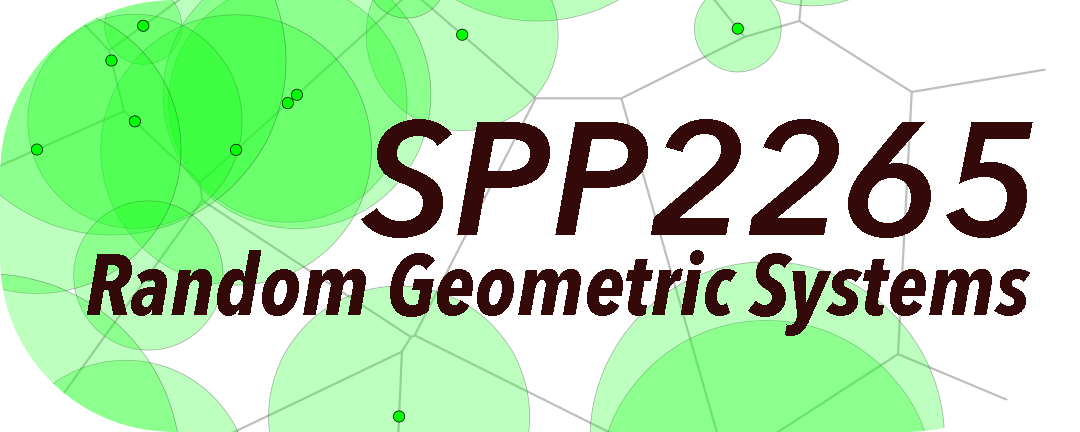P35
Limit theorems for stabilising functionals
Description Phase 2
Many random geometric systems are constructed from point processes.
Their global quantities can frequently be expressed as sums of contributions
of the underlying points, so-called scores. Stabilisation means that the score
of a point only depends on the other points of the point process in a random
neighbourhood. Such sums of scores are called stabilising functionals and
play an important role in stochastic geometry. They arise, for example, in the
context of spatial random graphs, random tessellations or random polytopes.
This project concerns stabilising functionals of underlying Poisson or binomial
point processes and studies their asymptotic behaviour as the number of
points goes to infinity. Here the variances of stabilising functionals can have
different orders, which is crucial for their analysis. Limit theorems for stabilising
functionals are an active topic of research for more than twenty years
and can be applied to many different problems. The goal of this project is to
significantly extend and complement the limit theory for stabilising functionals
in several directions: (i) multivariate quantitative central limit theorems,
(ii) discretised normal approximation, (iii) normal approximation in total variation
distance and (iv) functional central limit theorems. It is planned to derive
abstract results that are valid for large classes of stabilising functionals and,
in particular, for different variance orders. These findings will be applied to
many prominent examples from stochastic geometry such as edge-length
functionals and component counts of spatial random graphs, edge-length
functionals of Voronoi tessellations, the volume of the Voronoi set approximation,
numbers of maximal points as well as intrinsic volumes and numbers
of k-faces of random polytopes. The proofs of some of the intended results
will rely on Stein’s method or its combination with Malliavin calculus.



